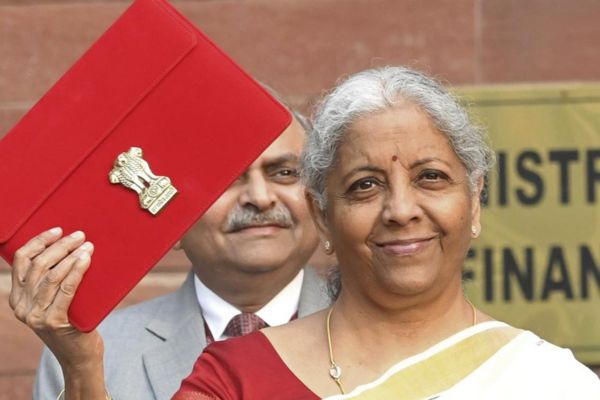The Union Budget 2025 was subject to several watershed announcements, as Minister of Finance, Nirmala Sitharaman, delivered a keynote speech at the Parliament on February 1. The core focus of the budget was directed at extending critical support to 4 core areas — Agriculture, MSME, Investments and Exports, favourably impacting a holistic growth roadmap through meaningful announcements. The Union Budget prioritised making essential announcements and reforms in agriculture, Artificial Intelligence (AI), upskilling, manufacturing and sustainable development, providing a progressive perspective on the GOI’s strategic blueprint for the upcoming financial year. Furthermore, the announcements and reforms also marked a watershed moment for India’s comprehensive emphasis on sectoral growth, and corporates welcomed the approach with both hands.
While the Union Budget 2025’s comprehensive focus emphasised supporting the growth of Indian MSMEs, larger industry stakeholders from diverse sectors immensely benefited from key announcements. For instance, announcements on AI, upskilling, employment generation, manufacturing, logistics, agriculture and the National Manufacturing Mission provided a clear blueprint for the GOI’s strategy to drive scalability and growth, positioning the country in a unique spot to sustain its growth potential for the upcoming fiscal year.
AI & Upskilling
The Government of India maintained its supportive perspective of the growth of AI within the national borders, while also aligning it with a feasible career option for the country’s significant population of talents. The government’s emphasis on driving AI development for drug discovery within India with more investments highlights the favourable outlook on the space in the country, and Mr. Arun Prakash M, Founder and CEO of GUVI Geek Networks believes that it will have a long-term favourable impact on the future of Indian talents.
“The growing emphasis on AI has been addressed well in the Union Government by inviting investments in AI for drug discovery. As India looks to advance its capabilities in AI, upskilling in relevant tech education will be imperative. The government’s decision to add broadband connections in government secondary schools to integrate digital learning, while also helping learners to understand the subjects better in their respective languages is commendable. Furthermore, the establishment of 5 national centres of excellence for upskilling to supplement Make for India and Make for the World will have long-term favourable implications on the future of millions of Indian talents, helping them to become critical contributors of the country’s bid to become a developed nation by 2047,” he said.
Manufacturing & Construction
As Finance Minister Nirmala Sitharaman announced the National Manufacturing Mission to provide policy support for diverse industries, it highlighted the Goverment of India’s favourable outlook for domestic development and bid to position India as a global manufacturing hotspot. Speaking on the same, Mr. Rajesh Shah, Chairman & Managing Director of Euro Panel Products Limited, revealed that this would position India’s manufacturing countries on a path to significant growth, saying, “The introduction of the National Manufacturing Mission will provide critical policy support to various industries, reinforcing India’s commitment to becoming a global manufacturing leader. Also, the setup of an Urban Challenge fund worth INR 1 lakh crore to redevelop cities positions the building materials and construction industry in a favourable position. The emphasis of each infra ministry to come up with a 3-year list of PPP projects will be an era-appropriate move, furthering the National Manufacturing Mission and Make in India initiatives. These will enable industry stakeholders to scale operations, enhance efficiency, and drive innovation — directly translating to India attracting greater investments, creating high-value jobs, strengthening supply chains and boosting exports.”
Agriculture
One of the four pillars of the Union Budget 2025 was agriculture, and its progressive outlook did not disappoint. The Prime Minister Dhan Dhanya Krishi Yojana in partnership with states, along with the extensive support provided to farmers with credit lines provides a long-term impact on India’s agriculture space, and Mr. Anshul Garg, Director & CEO of Aroma AAT Basmati Rice, agreed on the same.
“The PM Dhan Dhanya Krishi Yojana in partnership with states will be a significant boost in Basmati production domestically. This is a meaningful and era-appropriate announcement to increase India’s agri productivity and will benefit increasing Indian Basmati rice’s increased penetration in global key markets. As productivity increases, the emphasis on helping up to 1.7 Crore Indian farmers with both short and long term credit lines will also help to advance the rural economy and the creation of employment opportunities in the space will help position India as the global food basket. The enhanced credit line extended to 7.7 Crore farmers for short term loans of INR 5 Lakh is also a significant announcement, helping them with financial viability during cultivation season,” he said.
Sustainable Mobility & Electric Vehicles
India has already positioned itself as one of the highest EV-adopting countries in the world, and the announcement of the National Manufacturing Mission’s support for clean tech manufacturing at the Union Budget is expected to be a game changer. The Union Budget 2025 prioritizes sustainable mobility in the country with the removal of Basic Customs Duty (BCD) on critical materials like cobalt powder, lithium-ion battery waste, and other essential minerals. This move has been further supported by an additional INR 10,000 crore investment in the Union Budget, highlighting innovation, job creation, and energy security.
Speaking on the same, Mr. Siddharth Patel, Founder of Greenway Mobility, quipped, “India’s push for sustainable mobility is getting a major boost with the removal of Basic Customs Duty (BCD) on critical materials like cobalt powder, lithium-ion battery waste, and other essential minerals. This bold move will lower manufacturing costs, ensure a steady supply of key resources, and accelerate the adoption of electric vehicles. More importantly, it paves the way for stronger domestic production, job creation, and advancements in battery technology, a key step toward a cleaner, more energy-independent future.”
“At the same time, the National Manufacturing Mission is set to transform India’s green energy landscape. By backing local production of EV batteries and solar panels, the initiative will reduce import reliance and make sustainable solutions more accessible. The government’s additional ₹10,000 crore investment signals a strong commitment to innovation and economic growth, strengthening India’s position as a global leader in clean technology,” he further added.

















